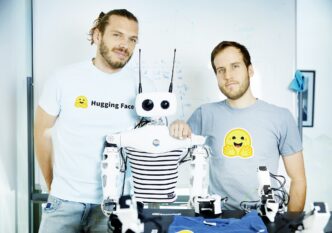AI-powered coding has taken the tech world by storm, promising developers quicker and easier ways to build software. But there’s a flip side: the surge in code volume has significantly raised the chance of bugs causing costly disruptions. This growing pain point is precisely where Israeli startup Lightrun steps in, offering advanced AI-based debugging solutions for code in production. The company recently secured an impressive $70 million in a Series B funding round to further its pioneering technology.
Accel, a new investor, co-led the funding round alongside previous backer Insight Partners, joined by Citi, Glilot Capital, GTM Capital, and Sorenson Capital. This fresh capital brings Lightrun’s total raised to $110 million since inception, highlighting strong market confidence and customer validation.
Lightrun’s success isn’t just theoretical; its client list is proof of its capability and appeal. Citi, both a customer and strategic investor, stands alongside tech giants like Microsoft, Salesforce, ADP, AT&T, Priceline, and SAP. These heavyweight names indicate that Lightrun’s technology isn’t just innovative but also essential.
The core of Lightrun’s appeal lies in its groundbreaking Runtime Autonomous AI Debugger, introduced last July. This tool addresses the mounting challenges companies face as AI-generated coding rapidly expands. More code inevitably leads to more complexity and potential failures, making Lightrun’s solution timely and critical.
The company’s remarkable traction is further underscored by its rapid revenue growth, increasing fourfold since launch. Accel’s partner Andrei Brasoveanu noted that although he had been observing Lightrun for years, it was the new AI-driven debugging tool launch that finally convinced him to invest. He highlighted the significant acceleration in enterprise demand driven by the AI revolution.
CEO Ilan Peleg, who co-founded Lightrun with CTO Leonid Blouvshtein, is no stranger to impeccable timing. Peleg, a former champion middle-distance runner with multiple national titles in Israel, understands the critical importance of precise timing. He sees the observability space crowded by prominent players like Datadog and AppDynamics, but believes none have yet reached the pinnacle Lightrun aims for: a comprehensive tool that predicts and fixes code issues before they can disrupt operations.
Lightrun stands out by seamlessly integrating observability directly into developers’ integrated development environments (IDEs). Its platform accurately simulates how new code will interact with existing production code, automatically addressing potential problems before deployment. This innovative approach ensures minimal downtime and significantly reduces the overall cost of maintaining software systems.
Peleg emphasizes that as developers ship more code, particularly AI-generated, manual debugging becomes increasingly unsustainable. Lightrun tackles this head-on, automating the debugging process and ensuring continuous operational stability. The platform leverages AI simulations to foresee and resolve potential disruptions proactively, setting it apart from competitors.
Looking forward, Lightrun could explore specialized tools aimed at cybersecurity teams or develop even closer integration into code creation workflows. However, for now, Peleg is laser-focused on perfecting the current platform within the IDE environment, emphasizing resilience and risk mitigation.
With between 30% to 60% of production issues traced back to coding errors, Lightrun’s innovation arrives at a critical juncture. By observing, simulating, and automatically correcting code in real-time, Lightrun is not just addressing today’s software challenges—it is actively shaping the future of reliable, AI-enhanced software development.













